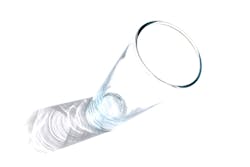Guide Helps Monitor Unknown Contaminants
The U.S. Environmental Protection Agency (EPA) released an updated version of its Sampling Guidance for Unknown Contaminants in Drinking Water. The guidance provides procedures for conducting routine and baseline monitoring in response to a triggered event, as well as sampling in support of remediation or decontamination efforts.
The guide brings together recommendations for collecting, storing, preserving and transporting samples of potentially contaminated water. It also provides recommendations to support the detection and identification of many types of contaminants in drinking water. This guidance can be used to support routine sample collection in response to a contamination incident or during remediation or decontamination efforts.
The recommendations provided in the guide are not mandatory and may be modified and leveraged as needed to meet the needs of individual utilities, responders and laboratories. The recommendations provided in the document are intended to aid coordination between the utility, emergency response and laboratory communities during the response to a contamination incident.
For more information, visit www.epa.gov/waterlabnetwork/sampling-guidance-unknown-contaminants-drinking-water.
Source: U.S. Environmental Protection Agency
